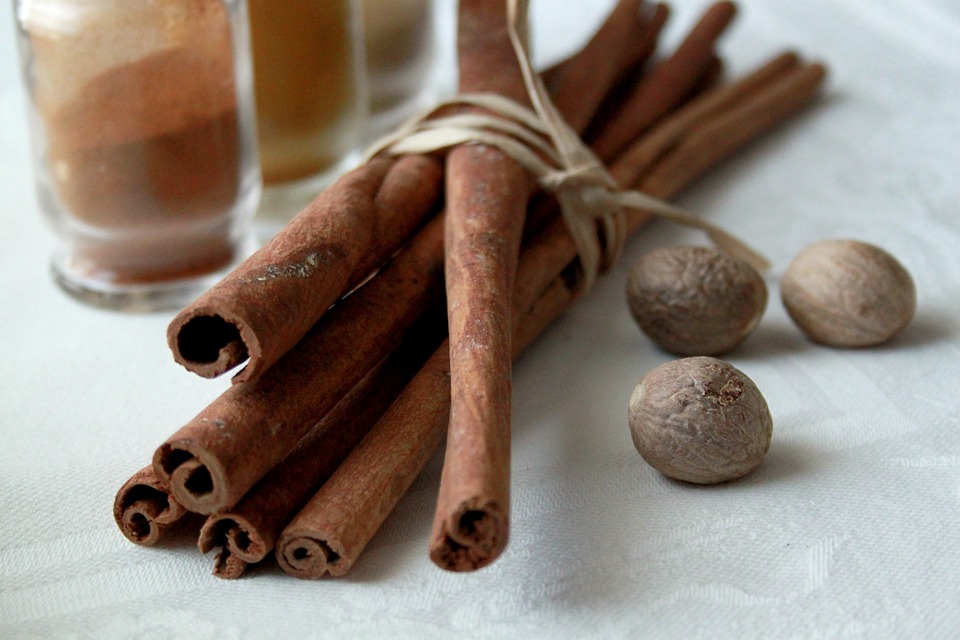Cinnamon has long been prized for its ability to enhance foods with its sweet yet piquant flavor. This fragrant spice has also been revered as an herbal medicine for thousands of years, with references to its merits occurring in both the Bible and the ancient texts of Chinese Traditional Medicine.
Now, we can add another claim to cinnamon’s likely benefits: a new study has shown that cinnamon can not only perk up our taste buds, but may have the ability to improve memory and other mental capacities.
Improve your brain function with the health benefits of cinnamon
In a study conducted at Rush University Medical Center last month, researchers found that cinnamon improved learning abilities in mice. After observing the performances of mice navigating a maze over a two-day interval, the scientists categorized the rodents as either “poor learners” or “good learners.” All mice were then fed cinnamon for a month and re-tested.
Impressive results: the performance of the ‘poor learners’ rose to a level equal to that of the good learners by changing levels of key neurotransmitters and proteins in the brain.
At the beginning of the study, the researchers found that the poor learners had lower levels of a protein linked to learning and memory, with higher levels of a protein that inhibits the conductance of the brain. After being fed cinnamon for a month, the poor learners had improved levels of the beneficial learning protein, less of the detrimental protein, and more plasticity, or flexibility, in their neurons. These biochemical changes translated into “smarter” mice, with better memory function and increased ability to learn.
Cinnamon shows promise in fighting Parkinson’s disease
Cinnamon metabolizes in the body to sodium benzoate, a substance currently used as a medical treatment for brain damage. So it makes sense that the RUMC research team has also explored cinnamon’s potential to fight Parkinson’s disease, which is associated with decreased levels of dopamine in the brain.
What they found was encouraging: cinnamon can reverse some of the biomechanical, cellular and anatomical changes that take place in the brain with Parkinson’s disease.
Two different proteins — Parkin and D-1 – are found in lower levels in the brains of Parkinson’s patients. Researchers found that the use of cinnamon halted this protein loss in mice, preventing further progression of the disease. In addition to helping to normalize brain chemicals and protecting neurons, cinnamon caused an improvement in motor function, leading one of the study authors to hail it as “one of the safest approaches to halt disease progression in Parkinson’s patients.”
Cinnamon’s high level of beneficial antioxidants help to unleash its disease-fighting power
As if it weren’t enough to improve mental function and fight a devastating neurological disease, cinnamon boasts a virtual laundry list of other health benefits. Its active constituents, particularly eugenol and cinnamaldehyde, are powerful antioxidants that can reduce harmful free radicals in the body. As a potent antimicrobial agent, cinnamon is effective against many common pathogens, including E. coli, salmonella, and H. pylori, the pathogen responsible for peptic ulcers.
Its antibacterial properties make it an excellent defense against gum disease – the reason it is so commonly found in toothpastes, gum and mouthwash. And there is evidence to suggest that cinnamon can help control blood sugar levels in people with type 2 diabetes.
Is one type of cinnamon better than another when it comes to health benefits?
The answer to this is an emphatic “yes.” You should use only organic Ceylon cinnamon, or “true” cinnamon, scientifically known as Cinnamomum verum. Avoid using cassia cinnamon, also called Chinese cinnamon; this contains high levels of coumarin, a substance toxic to the liver and kidneys.
In fact, a mere teaspoon of ground cassia cinnamon contains between 5.8 and 12.1 mg of coumarin – roughly 63 times the coumarin content of Ceylon cinnamon. Ceylon cinnamon’s infinitesimal coumarin content makes it a much safer bet.
How can I tell the difference between Ceylon and cassia cinnamon?
When ground, Ceylon cinnamon is paler in color than cassia cinnamon, which tends to be a robust reddish-brown.
When buying cinnamon in stick form, it is fairly easy to distinguish one from the other: Ceylon cinnamon is multi-layered when you look down the middle of the roll. It is also thinner, softer, smoother and more flexible, with visible bristles.
The flavor can also give you a clue. Ceylon cinnamon is sweeter and more mellow, while cassia cinnamon has a more pungent, peppery taste.
Finally, Ceylon cinnamon tends to be more expensive than cassia cinnamon – a minor price to pay for safety and peace of mind. So, whether you sprinkle it on oatmeal, use it to jazz up yogurt, or brew the sticks into a refreshing cinnamon tea, enjoy your Ceylon cinnamon, and reap the benefits of a sharper memory and quicker mind.
References:
https://www.sciencedaily.com/releases/2014/07/140709095257.htm
http://www.cinnamonvogue.com/cinnamoncommonuses.html








